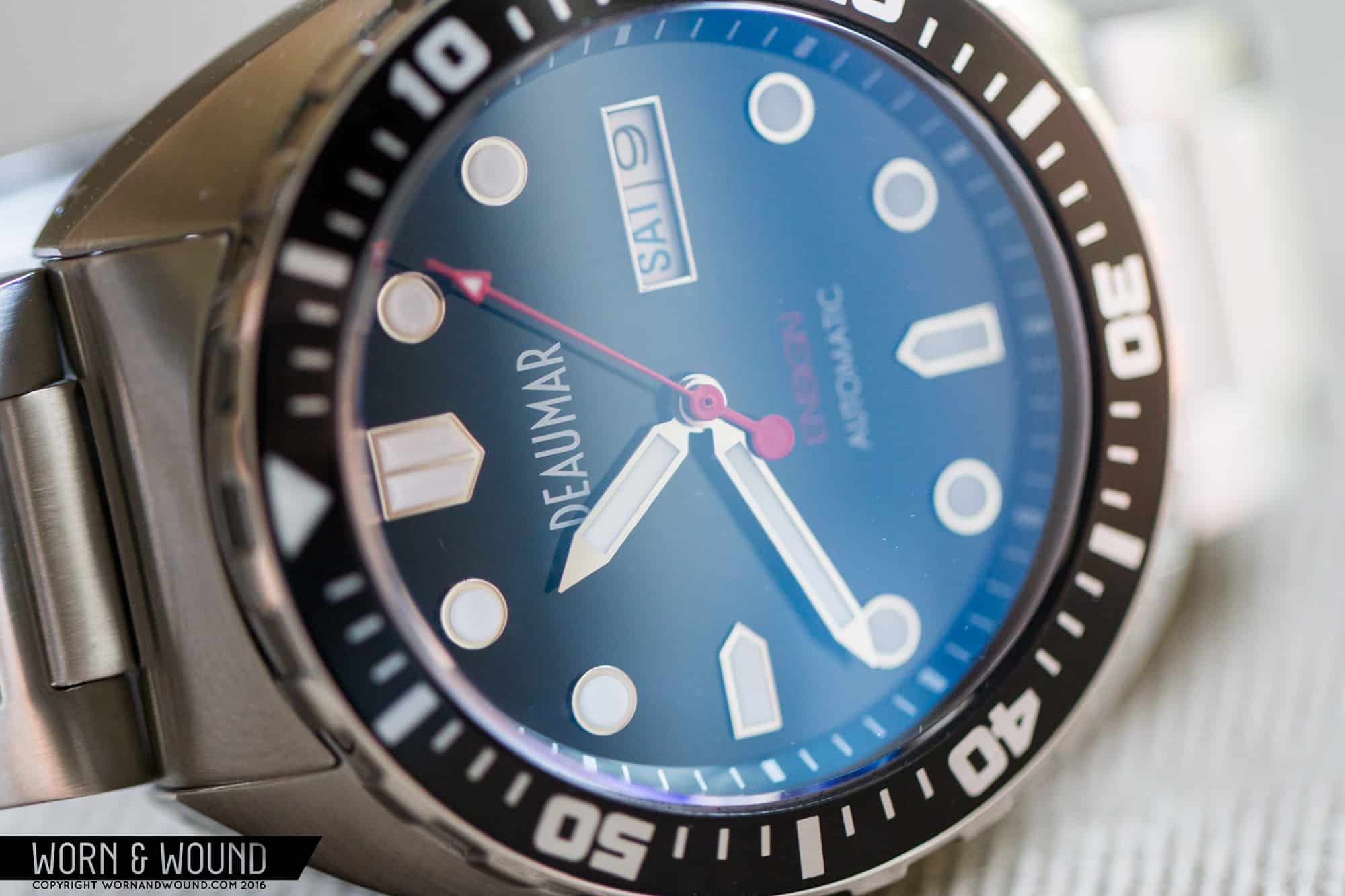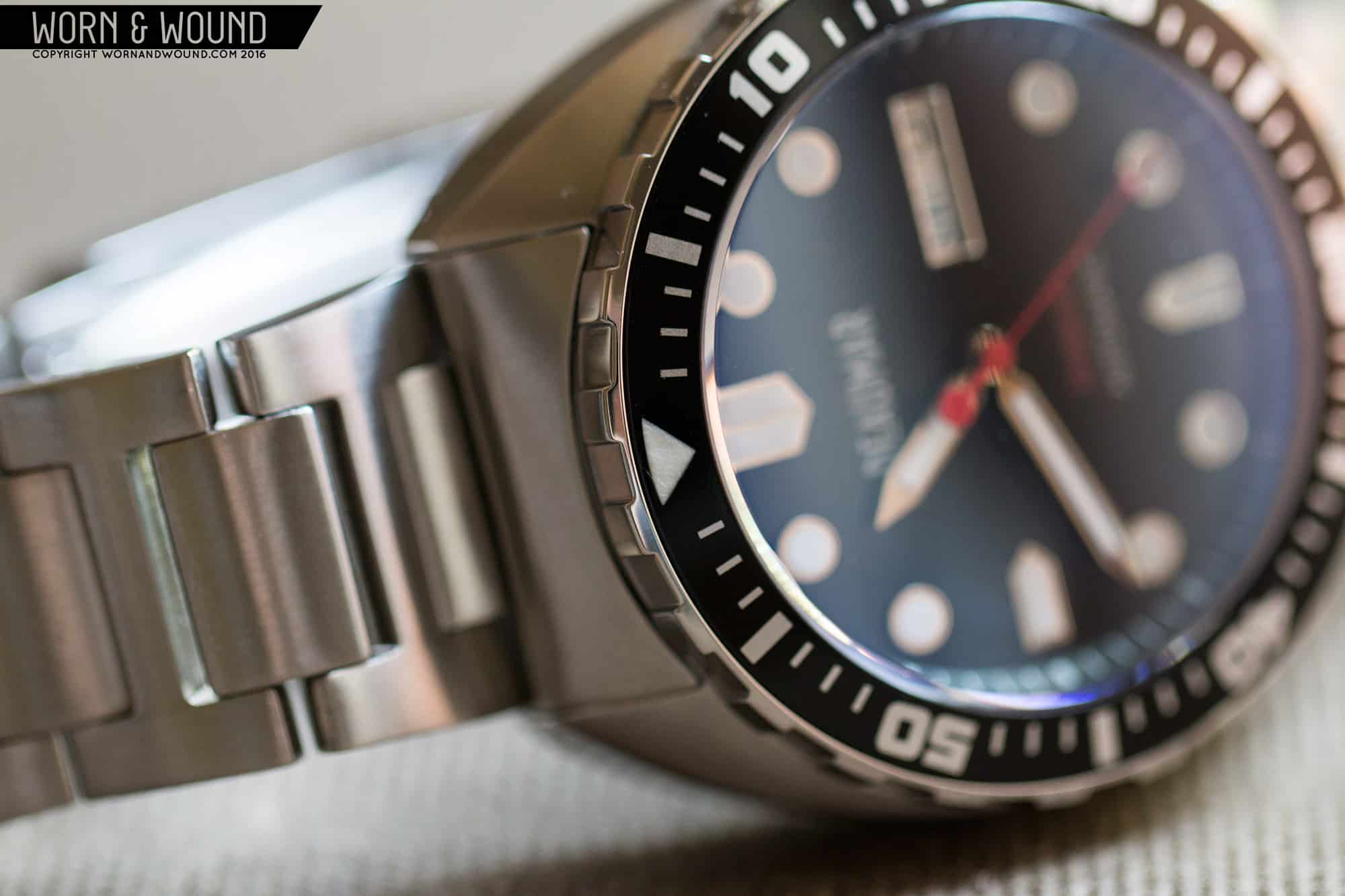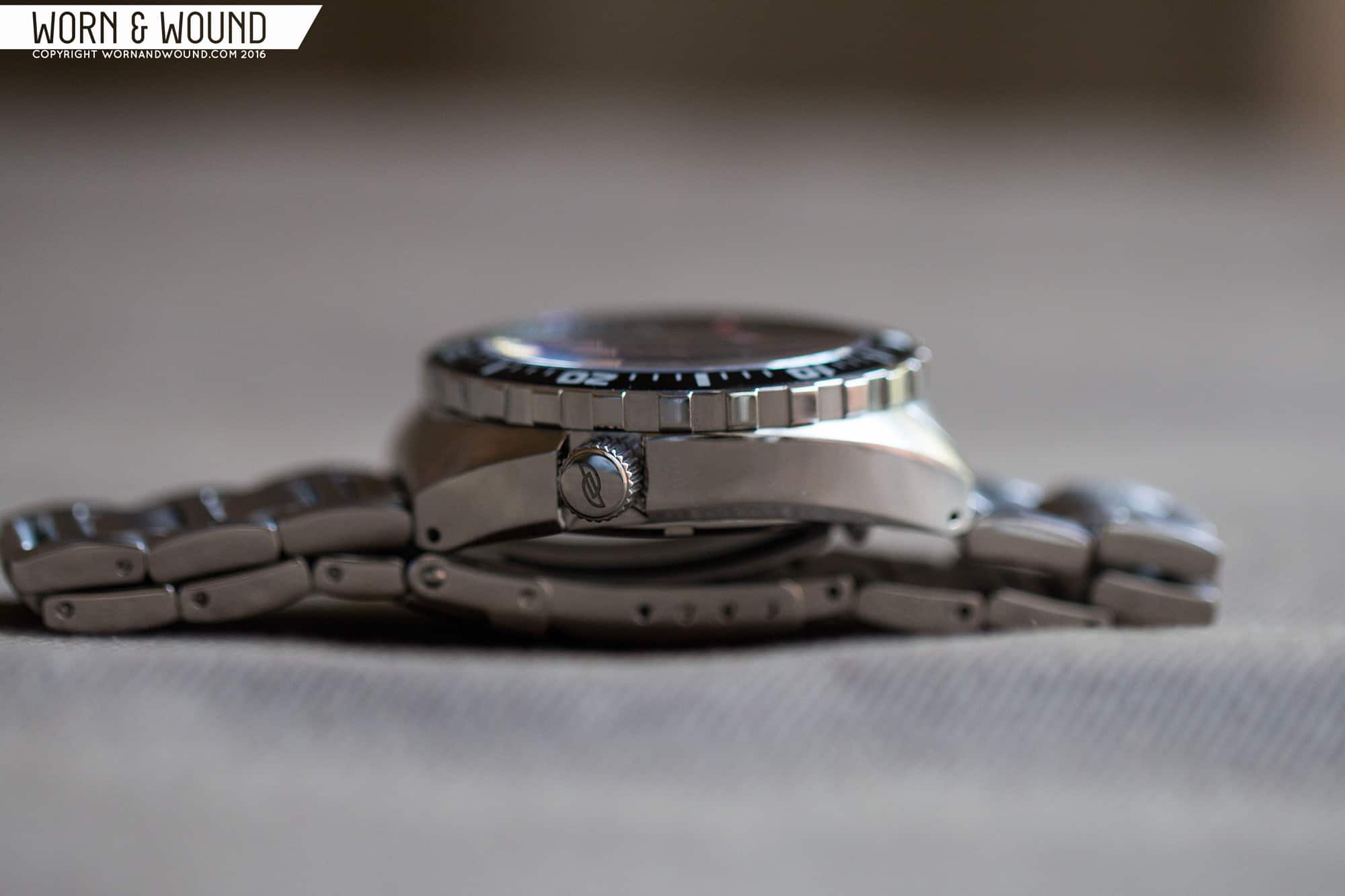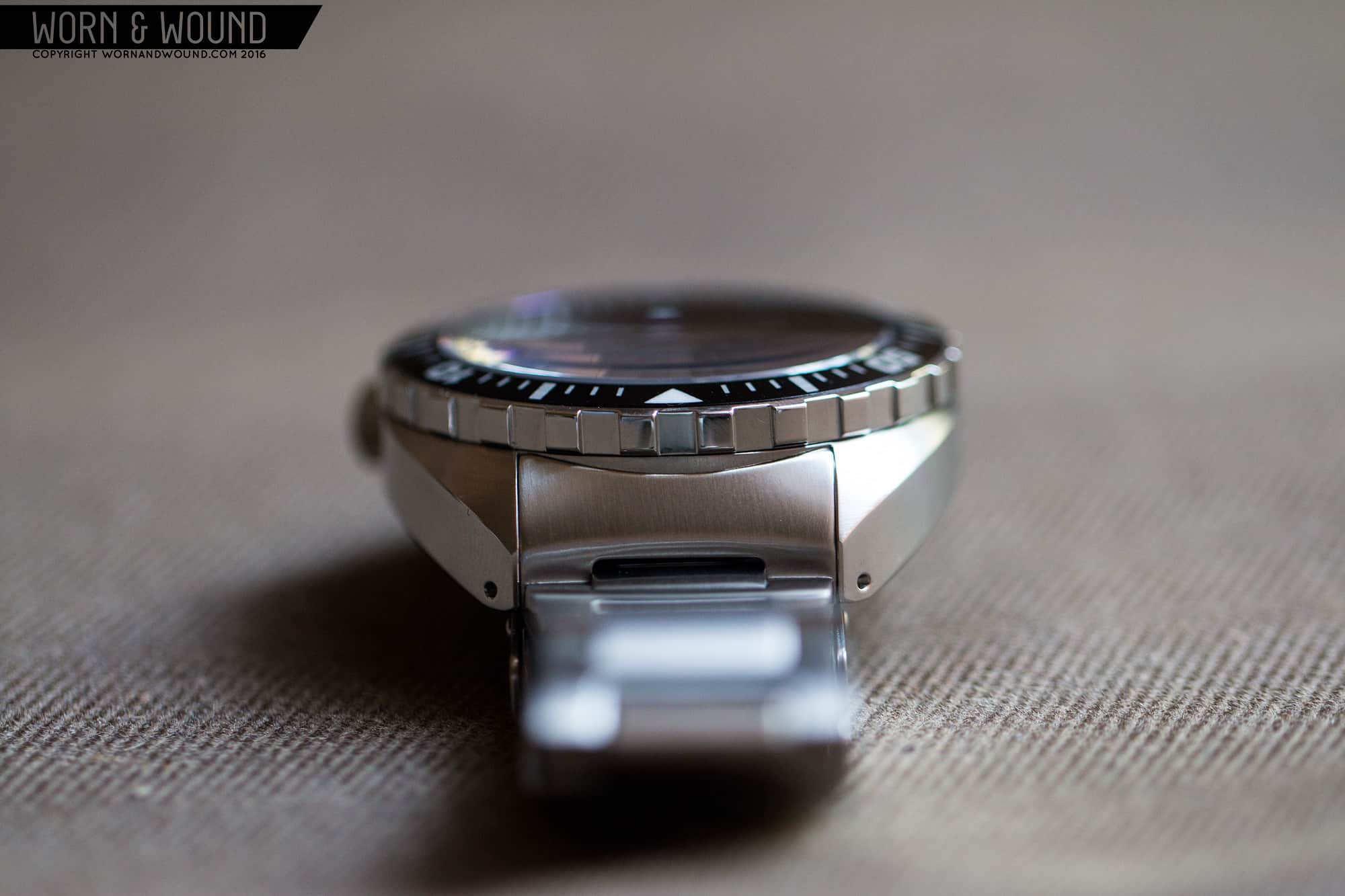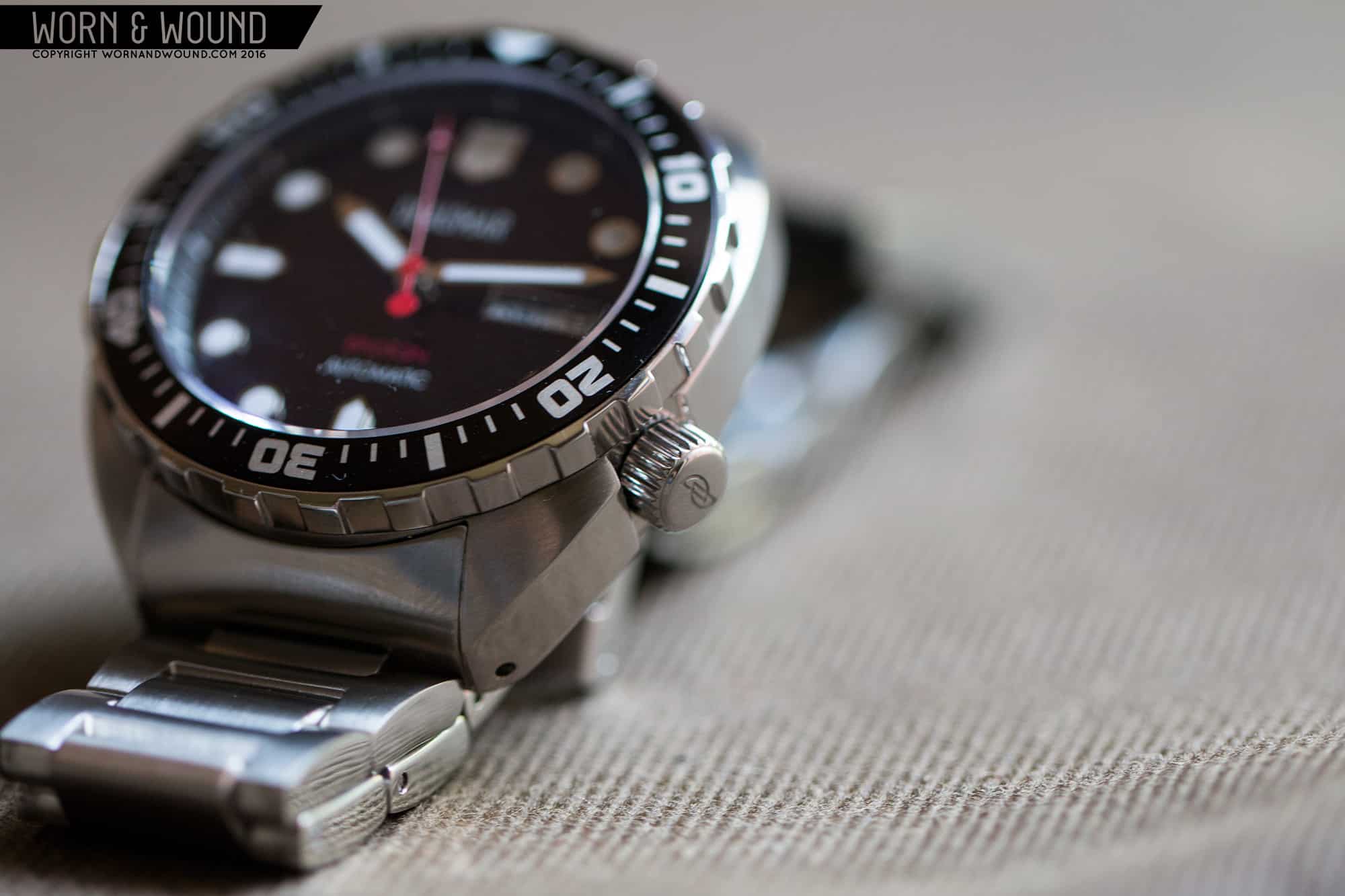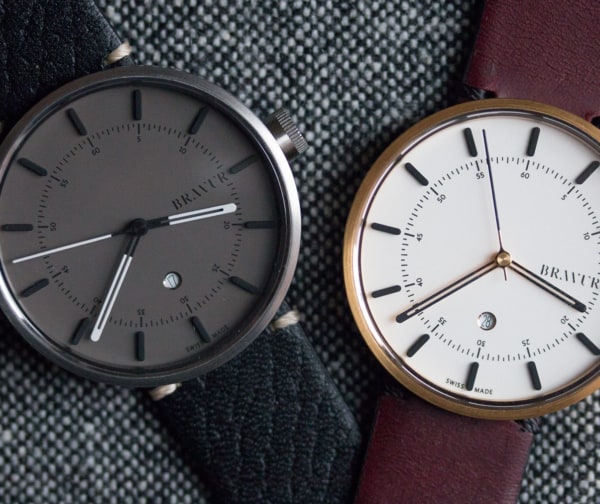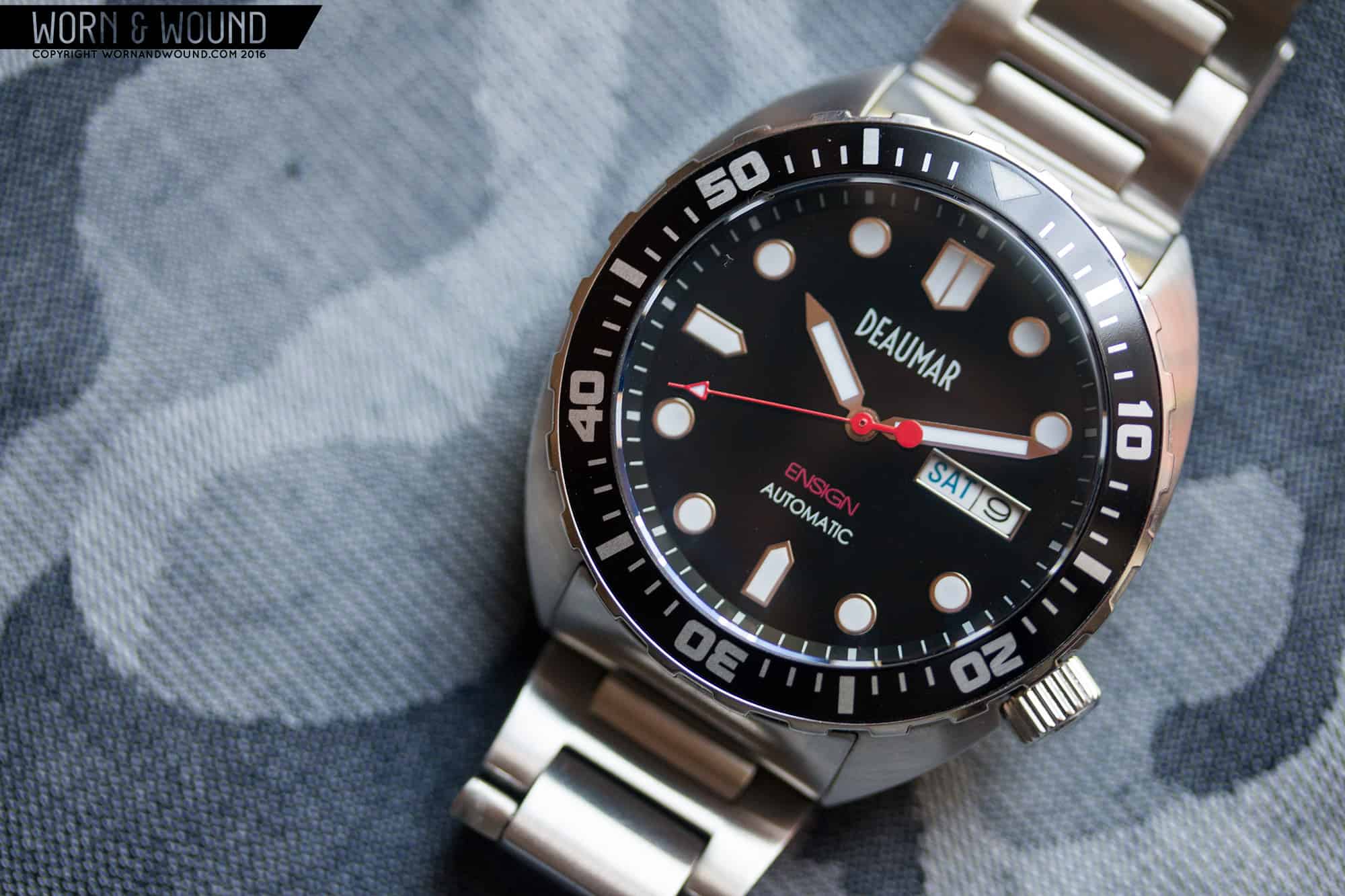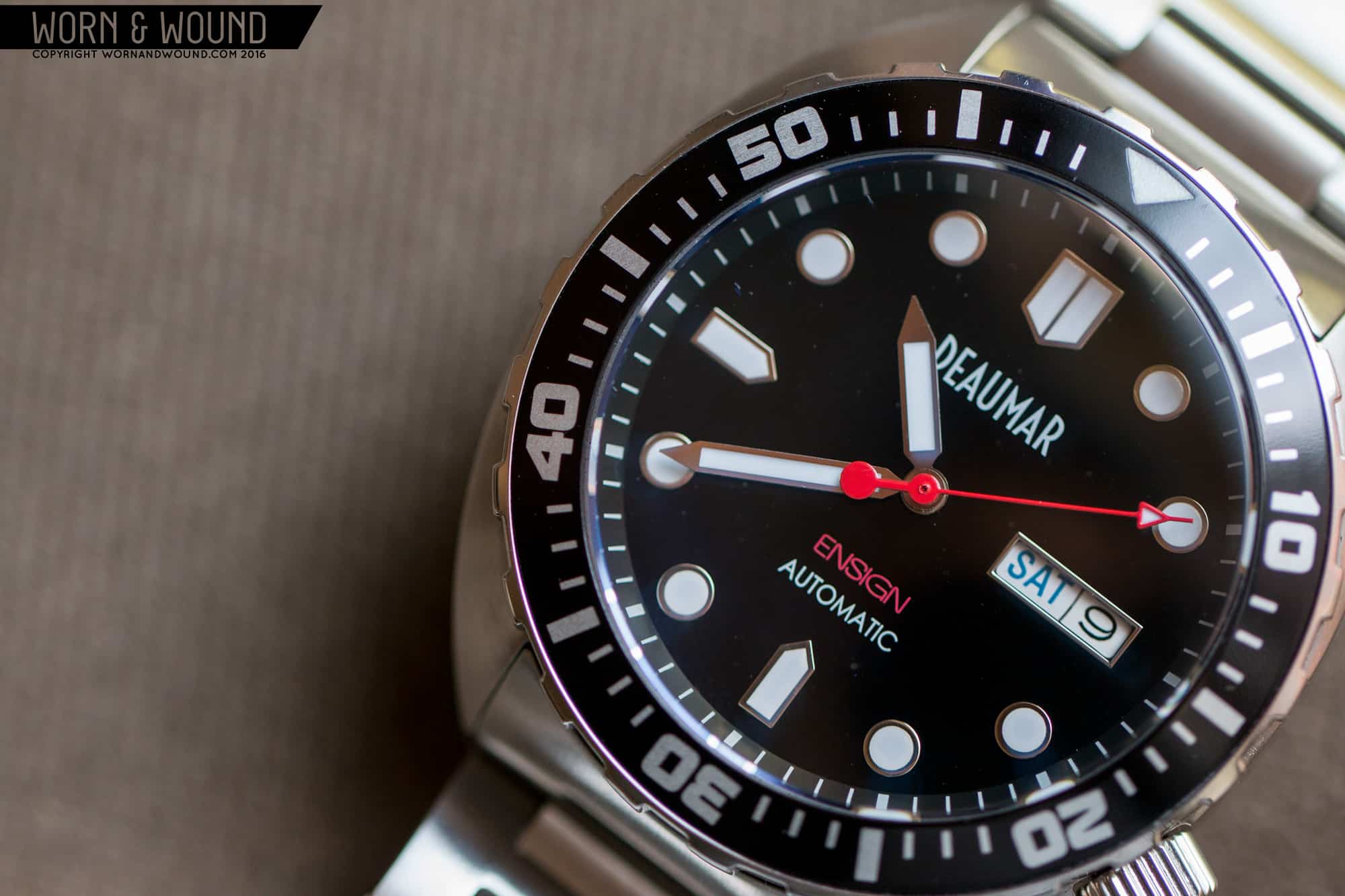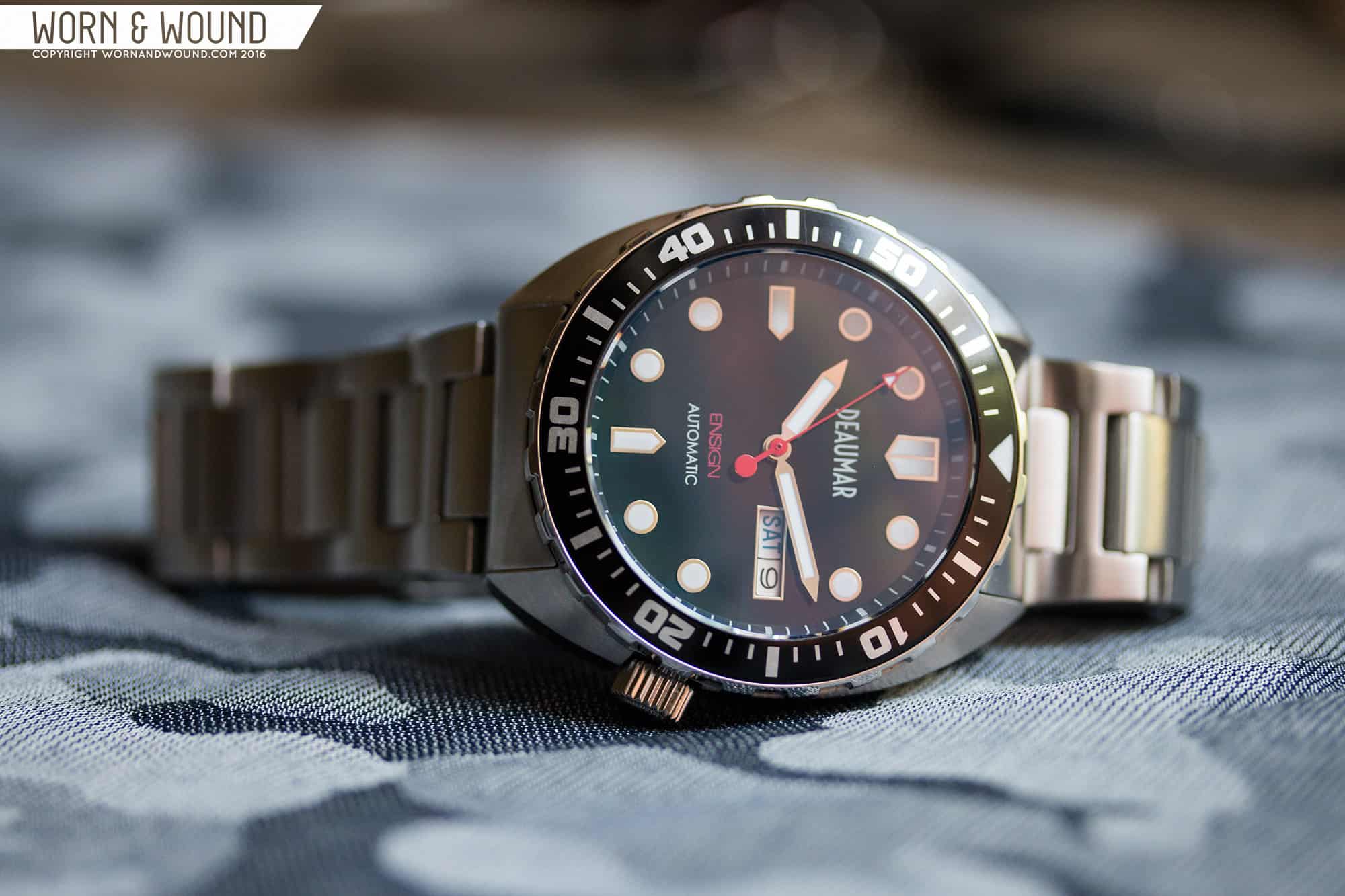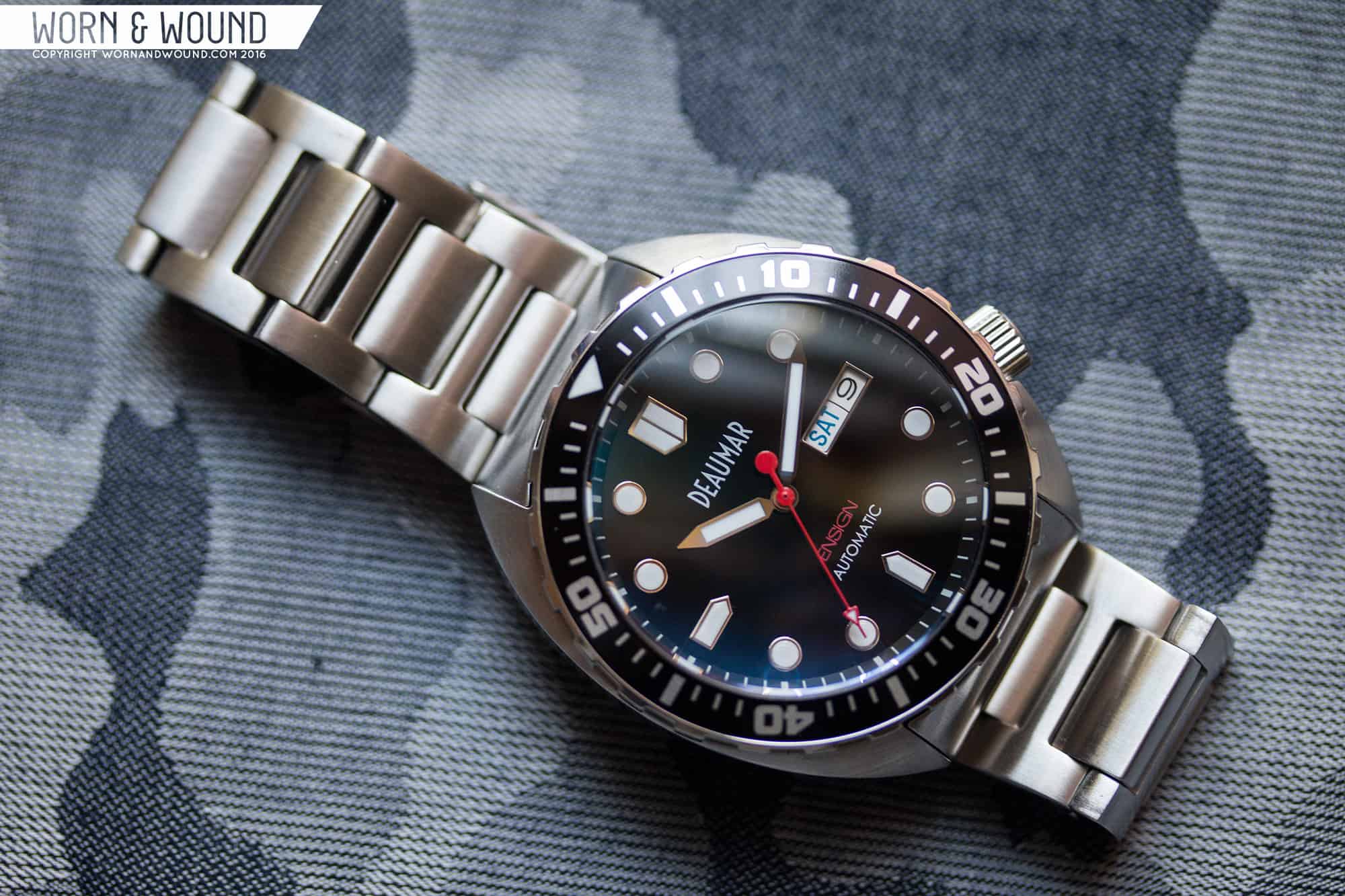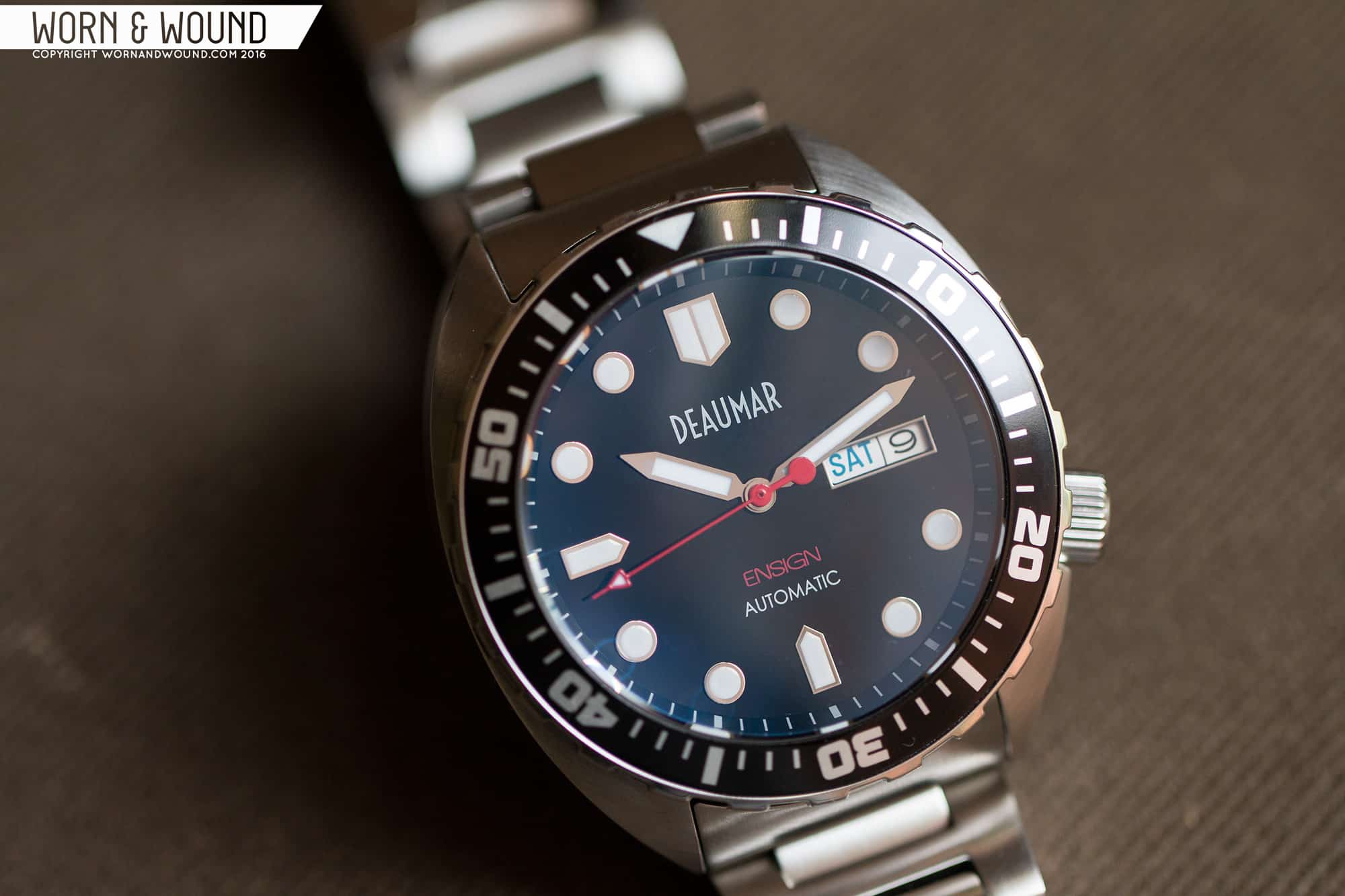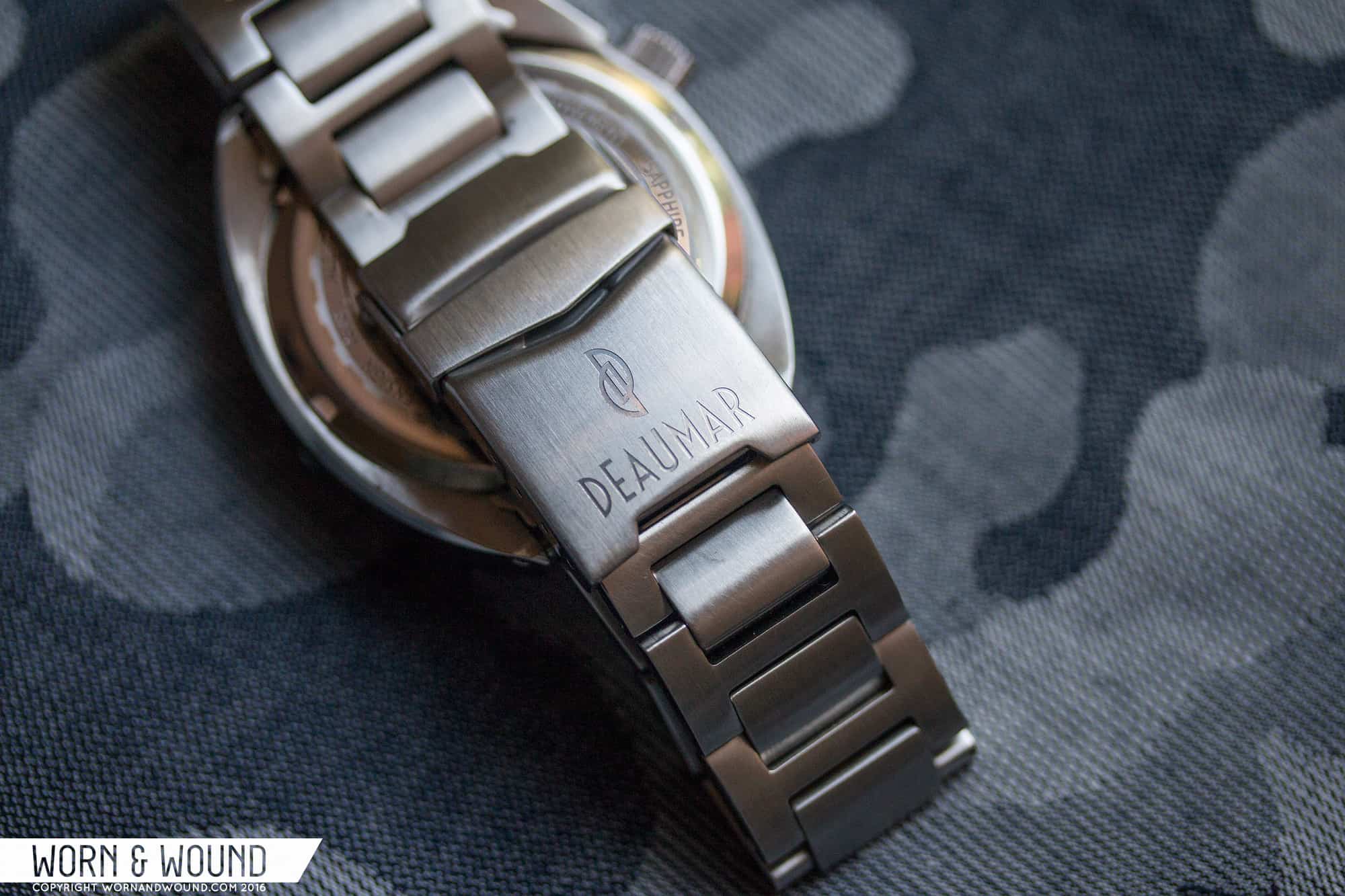Value plays a huge role in the watches we discuss on worn&wound. It’s a subjective quality for sure, but one that we keep in focus, if for different reasons. Perhaps the clearest and most obvious is simply the relationship of cost to components offered. The more cost stays down as component quality or perceived price goes up, so does the value. Which is to say, a brand is paying more, but making less per watch. This isn’t a hard-and-fast rule, and it can make for tricky arguments such as, “Well, if brand A charges X, then why does brand B charge Y for the same thing,” but when that relationship is clearly working in your–that is to say, the consumer’s–favor, it’s hard to deny the appeal.
 Enter Deaumar, a new brand from Great Britain. Pronounced dough-mar, their first watch, the Ensign, is a value-driven offering–a 200m sports/dive watch with straightforward looks, a sapphire crystal, a ceramic bezel, a bracelet with solid end links, and powered by a Seiko NH36 automatic movement. Solid components that I would expect to be in a watch starting around $500, but the Ensign comes in well under that. Currently being presold for £169 ($244), then increasing to £199 ($286) after the presale (both without VAT), the Ensign offers a lot per dollar. Of course, none of that matters if the watch itself isn’t well made and enjoyable, so let’s take a closer look.
Enter Deaumar, a new brand from Great Britain. Pronounced dough-mar, their first watch, the Ensign, is a value-driven offering–a 200m sports/dive watch with straightforward looks, a sapphire crystal, a ceramic bezel, a bracelet with solid end links, and powered by a Seiko NH36 automatic movement. Solid components that I would expect to be in a watch starting around $500, but the Ensign comes in well under that. Currently being presold for £169 ($244), then increasing to £199 ($286) after the presale (both without VAT), the Ensign offers a lot per dollar. Of course, none of that matters if the watch itself isn’t well made and enjoyable, so let’s take a closer look.


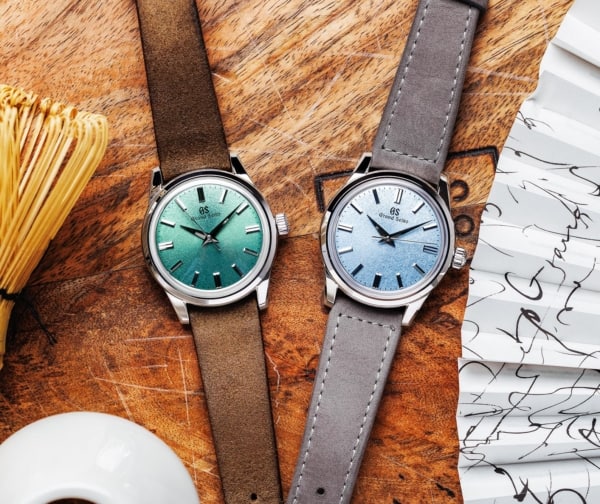






 Featured Videos
Featured Videos




